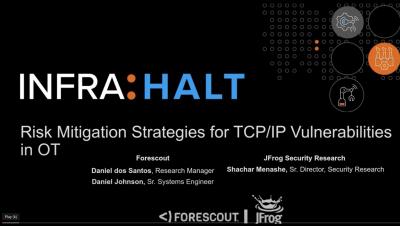Operations | Monitoring | ITSM | DevOps | Cloud
Vulnerability
How to mitigate the 0-day Apache path traversal vulnerability with Puppet or Bolt
Apache has disclosed a critical actively exploited path traversal flaw in the popular Apache web server, version 2.4.49. This path traversal means that an attacker can trivially read the contents of any file on the server that the Apache process has access to. This could expose highly sensitive information, even as critical as the server's own private SSL certificates. See the Sonatype blog for more technical information on the vulnerability.
23andMe's Yamale Python code injection, and properly sanitizing eval()
The Vulnerability Conundrum: Improving the Disclosure Process
Head-to-Head: Penetration Testing vs. Vulnerability Scanning
How to better prioritize vulnerability remediation through automated penetration testing
As most MSPs know, small- and medium-sized businesses are the most likely targets for cyberattacks. They lack many of the resources and infrastructure of their larger counterparts and a single cyberattack can be devastating. Analyzing and remediating vulnerabilities is an essential part of any security program. But current vulnerability management processes spit out long lists of instances that may or may not need remediation.
Critical Vulnerability in HAProxy (CVE-2021-40346): Integer Overflow Enables HTTP Smuggling
Risk Mitigation Strategies for Tcp/IP Vulnerabilities in OT
Scanning Dependencies in your sources using JFrog CLI and Xray
August/2021 - HAProxy 2.0+ HTTP/2 Vulnerabilities Fixed
If you are using HAProxy 2.0 or newer, it is important that you update to the latest version. A vulnerability was found that makes it possible to abuse the HTTP/2 parser, allowing an attacker to prepend hostnames to a request, append top-level domains to an existing domain, and inject invalid characters through the :method pseudo-header.











